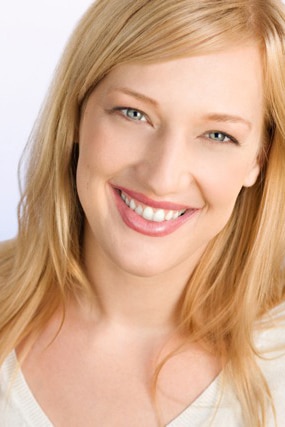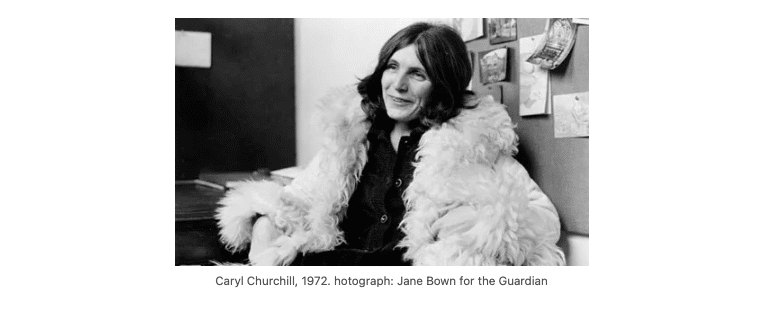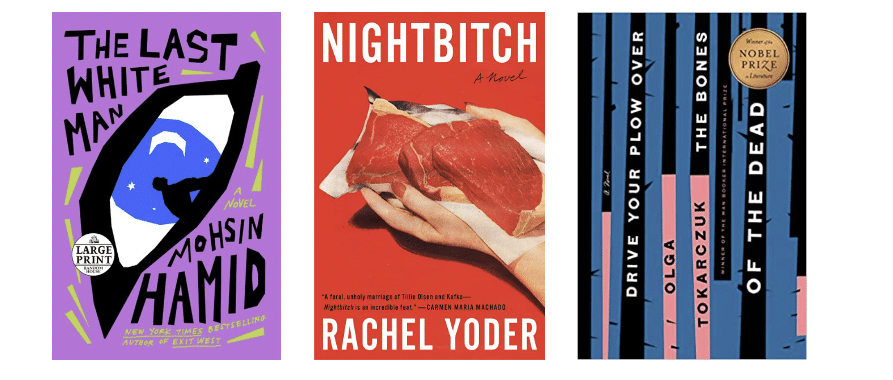We’re thrilled to introduce the 2023 Oregon Literary Fellowship recipients with individual features on our blog! Out-of-state judges spent several months evaluating the 500+ applications we received, and selected 13 writers and two publishers to receive grants of $3,500 each. Literary Arts also awarded two Oregon Literary Career Fellowships of $10,000 each. Applications for the 2024 Literary Fellowships will open in June 2023.

Sofia Molimbi (Dubrawsky) is a playwright who has been published by Smith & Kraus, Applause Acting Series, Meriwether Publishing, Pioneer Drama Service, and The Pitkin Review. Awards: The Finlandia Foundation for playwriting, The Spirit of Goddard, and The Pearl Foundation. She is also an actor, drama teacher, and theatre director. Sofia has worked as a theatre artist in NYC, Dublin, Helsinki, and her hometown of Portland. She holds an MFA in creative writing from Goddard College. Sofia is the recipient of the Women Writers Fellowship in Drama.
Q&A with Literary Arts
Who are some writers you look up to or who move you to write?
One playwright I’ve long admired, is Caryl Churchill. She has the unique ability to recreate her voice as a playwright for every play that she writes. She plays with structure, isn’t afraid to get political, and has a very layered way of writing. Every one of her plays (I believe she has over 30 published to date) leaves one with so much to think about! I’ll be digesting her plays for days afterward. She’s also a playwright who has sustained a very long career, while also raising children. As a mother myself, I’ll tell you- that is no small feat!

The play August: Osage County by Tracey Letts, has stayed close to my heart for quite a while now because I view it as one of the great American Family Tragicomedies. This genre is of special interest to me, where comedy and tragedy mix. If I don’t know whether to laugh or cry, that’s my kind of story! I am also drawn to family dynamics, it’s dysfunctions, and how place shapes who we become. I tend to write in this vein, whether I intend to or not. My goal is to write the next great American family tragicomedy, based in the pacific northwest, focusing on a modern family.
What are your sources of inspiration? Of joy?
I am most inspired by my family, traveling abroad, and my local community. Often, I will hear a phrase, or observe an interaction amongst strangers, that is just somehow a little bit different from the “norm”. Sometimes, these off-hand observations have sparked a new play for me. Like most writers, I’m obsessed with words and word choice. I’ve always been that way. As a kid, I was very quiet and began writing at a young age, making books for my teachers, or creating entire magazines, just for fun. As a teen, I began acting and kept it up for many years, even pursuing it in NYC for about a decade. I have been a theatre artist for my whole adult life, telling stories in one form or another. I have lived and traveled extensively throughout Europe, all the while listening and soaking in how different cultures use language in their own unique way. I truly love to listen and watch how people communicate. Of course, experiencing live theatre is extremely inspiring for me. I love to see what other playwrights and theatres are producing around town. I am so grateful that my hometown of Portland has so much to offer in terms of theatre. There’s nothing I love more than seeing a show with another theatre friend and discussing/processing it afterward. Art, music, live theatre, books, comedy shows, or having a long conversation with a dear friend, all of these things fill me with great joy and inspiration.
How would you describe your creative process?
I am a person who needs quiet and solitude in order to get my stories flowing onto the page. I may start with just a “spark” of an idea or no idea at all. It actually doesn’t matter too much because I don’t always know where the story will take me. If I have a strong sense of my characters, then I trust where they are leading me. I like to use a number of writing exercise to keep me going, if I ever feel like I’m losing steam. Editing of course is very important, and I like to ask my writer friends for help here, followed by a reading and then more editing. A production and/or publication is the end goal. As long as the play keeps ‘asking questions’, I feel like I am on the right track to figuring it out. When I was in graduate school pursuing my MFA in creative writing/playwriting, my advisor Rogelio Martinez said to me, “a play is like a funnel”. The play starts at the top of the funnel, where it’s wide and everything feels possible (for your characters, the plot, etc.). However, as the play moves on (and the sand falls out), slowly the action moves faster and the possibilities mix together- affecting one another and it all ends with only one incredible yet inevitable outcome. This image of how a play moves from beginning to end, and how every action affects the next action, has stuck with me and I think of it often while revising my work.
What is most exciting about receiving a fellowship?
I am so honored and grateful to receive this fellowship. It has made me feel a part of a community of writers and really given me a boost of confidence in myself as a playwright. As a mother of three young kids, this fellowship is giving me the most valuable gift one can receive- the gift of TIME! Time is what I need most of all, to write, edit, meet with other writers, etc. I am planning a writing retreat where I can focus solely on my writing. I need to be away from daily responsibilities and give my writing the time it deserves. I am most excited for the new work I now have the opportunity to create.
What are you currently working on?
I’m currently working on a play about a group of couples, and their teacher, who meet in a parenting group. It’s very much a relationship play, but not just the relationship with your partner, but also with your children, friends, and also yourself. The play also plays with time, which allows us to poignantly see how much the characters change over time. It’s bitter sweet to witness how easily we often feel as if life will stay the same forever until of course it doesn’t. Also, navigating early parenthood is rife with comedy, and I know a little something about that.
What has kept you writing?
Writing is how I express my understanding of the world, and so I will always be writing. It makes me laugh, it challenges my own beliefs, and keeps me sane. I tend to write about what is grabbing my attention most and so, yes, writing helps me process the puzzles of daily life. I strongly believe that the story dictates the genre, and so I’ve also written poetry, short stories, and dabbled in screenplays. However, creating theatre requires a community, it doesn’t exist without people coming together and this is where I’ve always felt most at home.
What advice do you have for future applicants?
Apply! Apply! Apply! This was not my first time applying, but I just kept trying! In fact, I recall I wasn’t going to apply because it was summer, life was very busy with my infant baby, and I wasn’t feeling energized about my current writing life. However, the pay-off is just too great to not try. The fellowship has changed my outlook completely for the better and I’m so grateful. The fact is, you never know. It could be you next year! Now, how great would that be… :)

Any book (or movie, album, show, etc.) recommendations?
I love reading (and seeing!) plays, however I’ve always loved getting lost in fiction! Here’s some recent & all-time favorites:
PLAYS:
- The Kilroys List: 97 Monologues and Scenes by Female and Trans Playwrights, Volume One.
- August: Osage County by Tracy Letts
- Lydia by Octavio Solis
- Ruined by Lynn Nottage
- Owners by Caryl Churchill (and everything else by Caryl Churchill)
- Good People by David Lindsay-Abaire
FICTION:
- Nightbitch by Rachel Yoder
- The Last White Man by Mohsin Hamid (Exit West also amazing!)
- Drive Your Plow Over the Bones of the Dead by Olga Tokarczuk
- The Bluest Eye by Toni Morrison
Excerpt from The Eclipse
In this monologue, Katja, an elderly woman, speaks to Marcus, age 7, about the rules of her garden. She is curious about this young boy whom she has seen wandering alone in her neighborhood. She has a callous temper because of her past, but this young child somehow softens her and she finds herself wanting to help him.
KATJA: Normally, I wouldn’t let strangers into my garden, but… if you know how to pulls weeds, well then, I’ll let you poke around. First, you need to know the difference between good plants and bad weeds. See that? That’s a bad one. You have to pull it out- all the way from its root, see? It’s all about the roots. (A beat.) Otherwise it won’t really be gone. He’ll grow back again, bringing more bad friends… badness spreads easy, goodness needs to be protected from the bad. Go ahead, pull one out. Use your strength… (A beat.) Hey, that’s good! Now, look at these. These are NOT weeds, these are my favorite flowers. I planted these a long time ago when I moved here, they’re nice, right? They’re called Cosmos Flowers. They are special because they are self-seeders. That means they take care of themselves. They are one of the strongest flowers in the garden. They bloom in the spring, last ALL summer long, and then in the fall, they drop their own seeds into the dirt, getting ready to start again for next year. Smart flowers. I don’t have to do anything for them, they take care of themselves. (A beat.) When I was your size, I had to take care of myself too. I was like a self-seeder. It wasn’t easy, but that’s how it was in my country. We were the war-children. (A beat.) I haven’t seen you with anyone. Are you a self-seeder too?
Judge’s Comments
“Sofia Molimbi’s writing reflects an extremely original voice, a keen ear for language and nuance, and a poetic way of using dialogue that made the work really sing. Her subtle sense of humor is imbedded in the situation and in the contrasting personalities of the characters. I responded to her entertaining yet very real characters, the sharpness of her ability to get into their heads and render the truth in their voices, and the diversity of people she portrays.”


